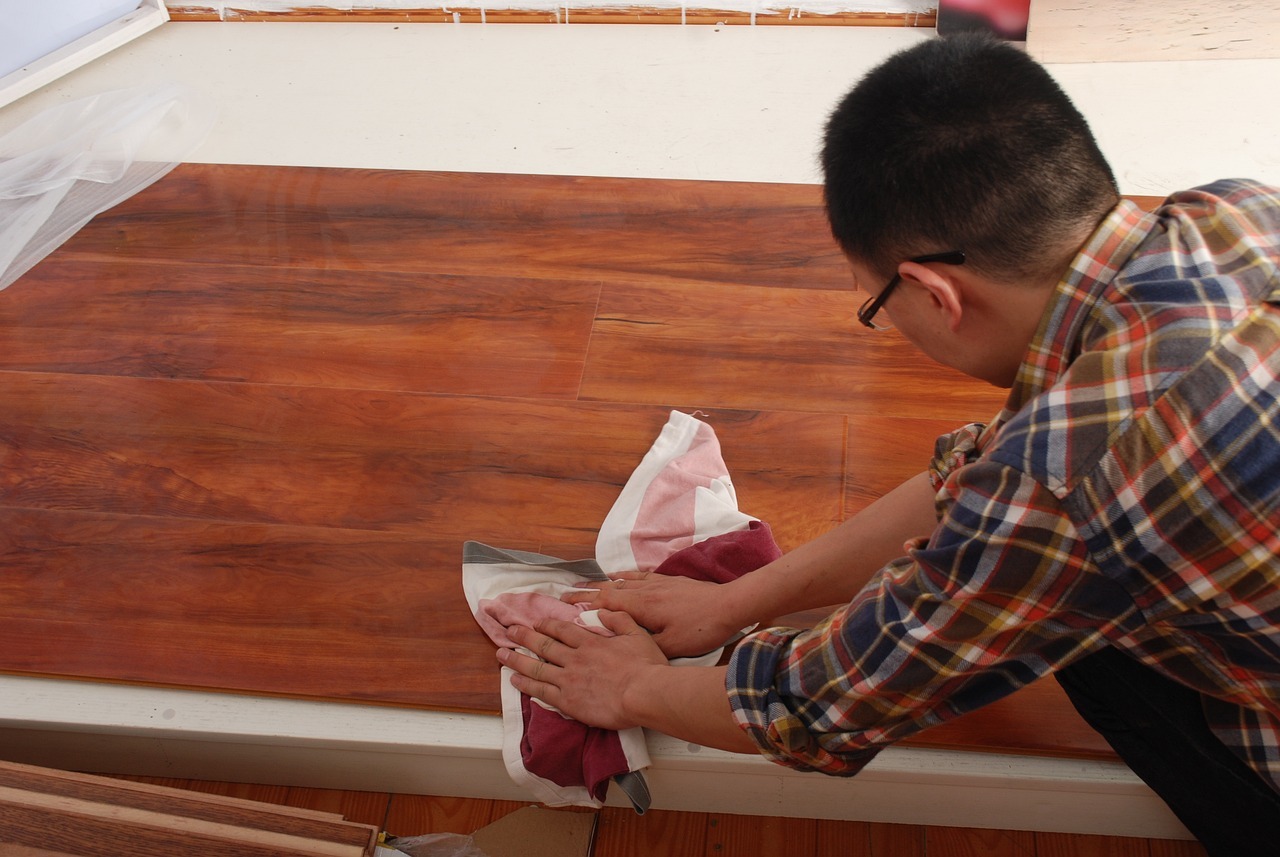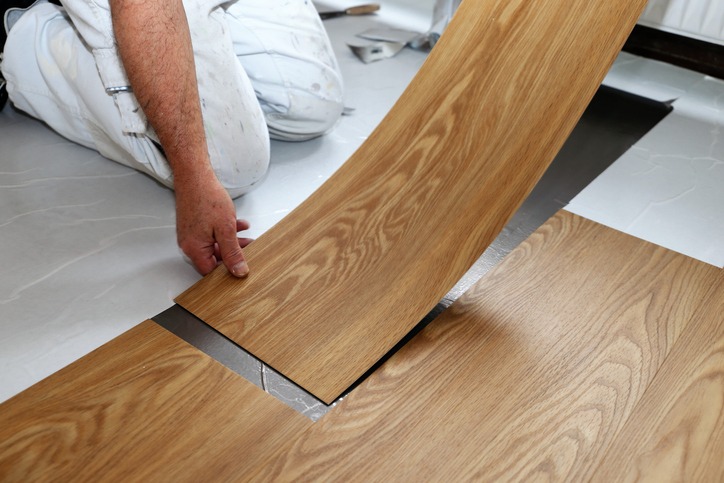As winter’s chill wraps your home in its icy embrace, you might wonder if vinyl plank flooring will keep its composure or crack under pressure in colder climates. You’re not alone in pondering whether this modern flooring solution can stand up to the frigid temperatures and moisture brought in by snow and ice.
Vinyl plank flooring offers a warm, insulating layer between your feet and the cold ground, and its waterproof nature makes it a contender for withstanding winter’s wrath. But before you make your final decision, consider the implications of thermal expansion and how well vinyl truly insulates against the cold.
This conversation is just getting started, and there’s more to uncover about ensuring your floors remain both functional and stylish, even as the mercury drops.
Thermal Expansion Concerns
In colder climates, vinyl plank flooring may expand and contract with temperature changes, making proper installation crucial to prevent buckling. When you’re choosing flooring options, it’s essential to consider the unique properties of materials like luxury vinyl plank flooring. This type of flooring is particularly resistant to the extreme temperature shifts you might experience in regions like Alberta. However, even with its resilience, the reality of vinyl expanding and contracting can’t be ignored.
To mitigate this, employing proper installation techniques becomes paramount. One of the key strategies is to leave expansion gaps around the edges of the room. These gaps are small spaces that allow the vinyl flooring to move slightly without causing damage. It’s a simple yet effective way to accommodate the natural expansion and contraction without compromising the floor’s integrity or appearance.
Moreover, installing your luxury vinyl plank flooring as a floating floor can further reduce the impact of temperature changes. This installation method allows the entire floor to move together, absorbing the shifts more uniformly and minimizing the risk of buckling. So, when you’re laying down your vinyl flooring, remember that a little space can make a big difference in maintaining its beauty and functionality through the seasons.
Insulation Properties
While considering the challenges of colder climates, it’s crucial to note that luxury vinyl plank flooring’s thick underlayment provides essential insulation, ensuring your floors stay warm. This feature is particularly beneficial in places like Alberta, where the temperature can swing dramatically. The underlayment not only eliminates the need for additional cushioning but also offers a comfortable walking surface, making your home feel warm and comfortable even during the coldest months.
Vinyl flooring is expressly designed to withstand extreme temperatures without compromising its insulative properties. This means that even as the mercury dips, your floors will remain a barrier against the cold, contributing to the overall warmth of your home. Furthermore, the proper installation of vinyl plank flooring, including the allowance for expansion gaps, prevents buckling and ensures the floor remains flat and stable, further enhancing its resistance to temperature changes.
In essence, the insulative properties of vinyl plank flooring make it an ideal choice for colder climates. Not only does it keep your floors warm and comfortable, but it also contributes to heat efficiency within your home, proving that vinyl flooring isn’t just about aesthetics—it’s also about providing practical solutions to cold weather challenges.
Waterproof Features
Vinyl plank flooring shields your home from water damage, making it a robust choice for regions frequently battling moisture due to snow and ice. Its waterproof features stand out, especially in cold climates where moisture resistance is key to maintaining your home’s integrity. Unlike traditional wooden floors that absorb water and suffer damage, vinyl plank flooring keeps water at bay. You won’t have to worry about warping or degradation due to exposure to moisture, ensuring your floors remain intact despite the harsh conditions outside.
Proper installation is crucial to maximizing the benefits of vinyl plank flooring’s waterproof qualities. When installed correctly, it prevents seepage between seams, offering long-term protection against moisture damage. This means you can enjoy peace of mind, knowing that your flooring won’t just give in when faced with the challenges of snow and ice.
Choosing vinyl plank flooring for your home in a cold climate isn’t just practical; it’s a durable choice that offers protection against temperature-related issues. With moisture resistance built into its design, you’re not just investing in flooring but in the longevity and comfort of your home.
Durability in Cold
Considering the harsh realities of cold climates, you’ll find that vinyl plank flooring’s durability stands up to freezing conditions without succumbing to cracking or warping. This resilience makes vinyl planks a smart choice for areas where the thermometer often dips below freezing. Thanks to their robust design, these floors can withstand the rigors of cold without losing their aesthetic appeal or functional integrity.
The secret behind vinyl plank flooring’s hardiness in cold climates lies in its unique composition. This material is engineered to resist moisture and dramatic temperature fluctuations, maintaining its structural strength even when the weather outside is frightful. You won’t have to worry about the cold causing damage or diminishing the life span of your floors.
In colder regions, where temperature changes can be sudden and extreme, vinyl plank flooring proves to be both stable and reliable. It remains unaffected by the variations, ensuring your floors look and perform their best year-round. The durability of vinyl planks in cold climates means you’re investing in a flooring solution that’s designed to last, offering peace of mind regardless of the weather.
Maintenance and Care
To ensure your vinyl plank flooring thrives in cold climates, it’s crucial to adhere to a regular cleaning and maintenance schedule. Temperature fluctuations can be harsh, but with the right upkeep, you can prevent damage that might otherwise compromise the integrity of your floors. Following the manufacturer’s guidelines for cleaning and maintenance isn’t just recommended; it’s essential for the longevity of your vinyl floors. This means using the correct cleaning solutions and methods to avoid causing any unintended harm.
Quality installation plays a pivotal role in how well your flooring stands up to the challenges of colder climates. Ensuring that your vinyl floors are properly installed can make a significant difference in their ability to withstand high traffic and temperature changes. Moreover, proper care doesn’t stop at cleaning. Being vigilant and addressing any issues as soon as they arise can be the difference between a simple fix and costly repairs down the line. Remember, the longevity of your vinyl plank flooring in colder climates isn’t just about enduring the cold—it’s about how well you maintain and care for it over time.
Additional Details
- Learn more about vinyl plank flooring for cold temperatures
- Learn more about vinyl tiles
Conclusion
In conclusion, you’ll find vinyl plank flooring to be an excellent choice for colder climates. Its ability to handle thermal expansion, superior insulation properties, and waterproof features make it stand out. It’s not only durable in the face of cold weather but also low-maintenance, ensuring your home stays comfortable and stylish.
So, if you’re living in a place like Alberta, opting for vinyl plank flooring can be a smart, worry-free decision for your home.


